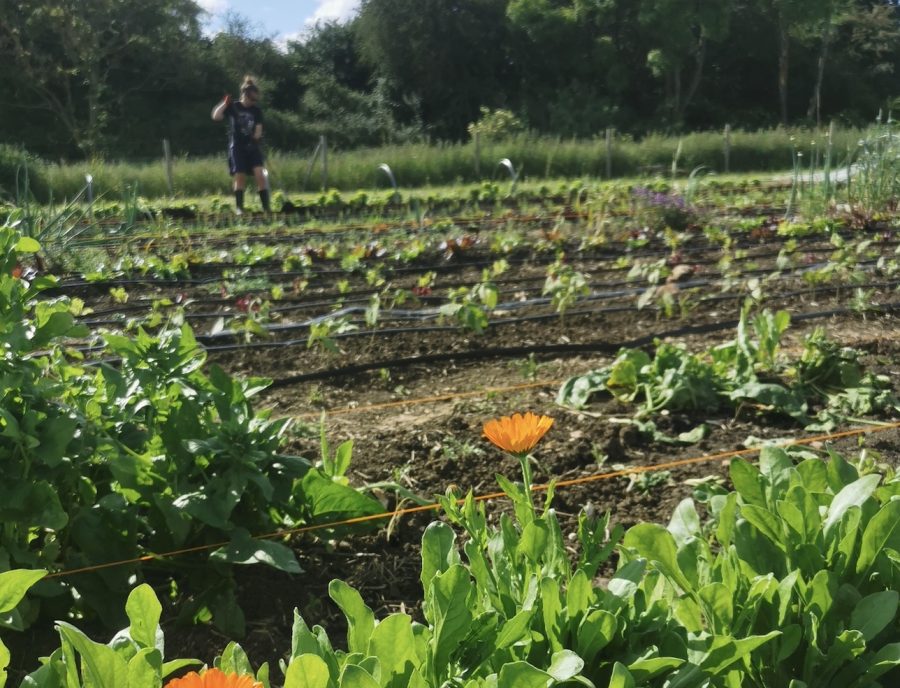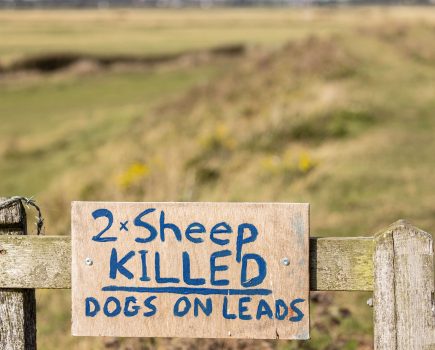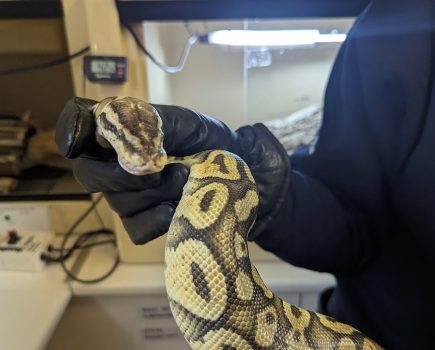Six Inches of Soil tells the story of the farmers, communities, small businesses, chefs and entrepreneurs who are leading the way to transform how our food is produced and consumed. Michael Wale reports.
Six Inches of Soil, a film launched at Cop 28, focuses on three young British farmers, who are adopting agroecology in a bid to change the industrial approach to farming and shorten the supply chain.
Agroecology is an approach to farming where regenerative farming techniques work in harmony with, rather than against, nature. It focuses on local food systems and shorter supply chains. The advantages are numerous: we get to know who is growing our food and how farmers get paid a fair price, and farmers have the satisfaction of producing healthy food in a healthy environment.
Three farmers provide the film’s storyline. Anna Jackson, who grew up on a farm but took up photography in London and Oxford before the pandemic caused her to return to the family farm near Scunthorpe in Lincolnshire. Her father had changed his ways years before but her influence was to change things in the future even more.
Ben Thomas grew up on the family farm, went to Harper Adams, worked on two other farms and has now, with his partner, taken over a cattle farm on Bodmin Moor, mob grazing to improve soil health and biodiversity.
And the most unusual, Adrienne Gordon, who was not a farmer, but wanted to run a fruit and veg smallholding, and got hold of four acres in Cambridgeshire, which she has branded ‘Sweetpea Market Garden’. Adrienne is 34 now and used to the hard work farming requires having worked on an organic farm. Before that she managed a café, which taught her how to run a business. When she started her market garden business, she put £12,000 in to pay the bills, drew no money out herself and took other jobs to give her financial security. Oh, and the rest of the time she worked as many hours as possible to grow for her burgeoning market.
MAKING A LOCAL BUSINESS – IT CAN BE DONE
So how did she end up as one of the main characters in the film? She explains: “I got a call from the man who runs the local veg box company. He told me that there was a film company looking for someone starting up farming. I did not think it would be such a big film (it lasts an hour and a half). I think it has helped my confidence. People who have seen the film, send me supportive messages. That has helped business ,which is a local business. I do a local market at a nearby village and, we are starting to supply another fortnightly market nearby. I sell to farm shops and delis”.
Because she cannot keep up supply, at present, all year-round, she also buys in for several weeks from local organic growers.
Right at the beginning, she invested in two 60ft-long polytunnels so that she can provide a ready supply of the most popular local food people want, salad stuff and various types of tomatoes. She soon learned that beside quality, it is yield that matters if she is to make a workable profit, hence she concentrates on various varieties and colours of cherry tomatoes at the expense of the beefsteak variety. As far as lettuce is concerned, the two most popular varieties she produces are Little Gem and Oak Leaf. One of her most popular innovations is her Rainbow Salad, which reflects its title with edible flowers added to other multicoloured salad stuff.
This article extract was taken from the July 2024 edition of The Country Smallholder. To read the article in full, you can buy the issue here.
To receive regular copies of The Country Smallholder magazine featuring more articles like this, subscribe here.
For FREE updates from the world of smallholding, sign up for The Country Smallholder newsletter here.








